|
|

|
Newsletter
No. 61
|
|
|
| WELCOME |
|
Seasons Greetings! It’s warming up now and snakes are very much on the move and we here at Animal Ark are looking forward to a break during the holiday season. With the ongoing success and popularity of Snake Aversion training for dogs we travel widely, doing our best to give dogs the notion that snakes are not fun, not worth a sniff and definitely to be avoided. Luckily, we have our place in the Perth Hills at Mahogany Creek so we can train frequently both with the dogs and also humans as well. We teach Venomous Snake Removal for individuals as well as the mining and construction industries. We are very safety focused and use a range of equipment to help people catch and relocate snakes without incident. We hope to see you, or you and your dog at a training event soon.
|

|
|
|
| OLD SNAKE |
|
The oldest known snake lives at Saint Louis Zoo in the USA. She is a 62-year-old Ball Python Python regius.
Ball pythons are named for their defence strategy that involves rolling into a tight ball when threatened, with their head very much in the centre of the ball. Just how long most snakes can live in the wild is an unknown – 10 to 15 years maybe, depending on the species. Most wild animals – snakes included - just don’t live long at all: disease, predation, starvation all limit longevity. However, the remarkable thing about this particular elderly female snake is that she has recently laid 7 eggs. More remarkable still is the fact that she hasn’t been near a male snake for 15 years.
Has she stored sperm for 15 years or has she used parthenogenesis for this late show of fertility? Only time will tell as samples are being sent for genetic testing. If genetically identical to the female they are a result of parthenogenic reproduction, if non identical she did indeed store viable sperm for 15 years or sneaked to meet her squeeze!
|
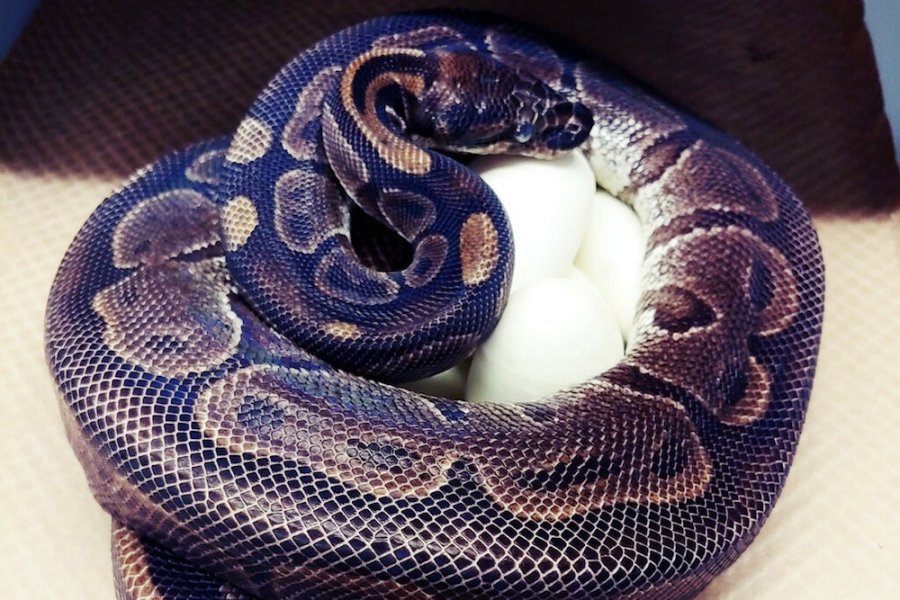
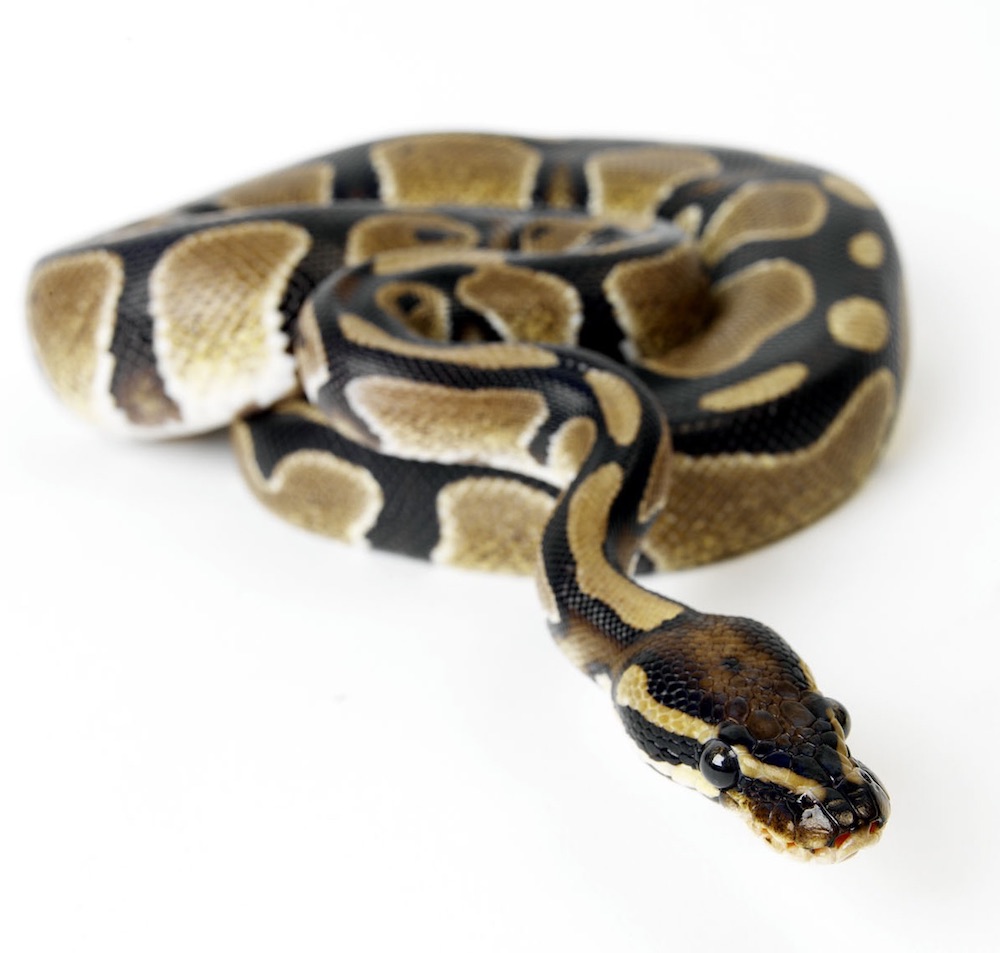
|
|
|
| SNAKE MYTHS |
|
We are frequently asked about venomous Australian baby snakes:
Is it true baby snakes cannot control how much venom they inject?
Snakes of all ages control how much venom if any is injected during a bite. There are no studies I can find to suggest baby snakes are different to adults. What is absolutely certain is that a baby snake has a very small venom gland compared to an adult so the amount of venom available to inject is tiny compared to an adult. BUT absolutely baby venomous snakes can still be very dangerous.
Is it true that baby snake venom is stronger than in an adult?
Again, there is no science to suggest this is the case and no reason to think why it would be so. One venomous sea snake research paper I looked at showed remarkably little difference in venom between juvenile or adult. Snakes of all ages face many dangers, but venom evolved in snakes primarily to aid capture and immobilisation of prey and not as a means of defence. The composition of venom is very complex and can vary from species to species as well as according to what prey is targeted and venom may also vary from juvenile to adult.
Is it true baby snakes are more defensive and more likely to inject than an adult?
Once again there is no evidence to suggest this is the case. It would seem unlikely to me. Producing venom comes at a high (metabolic) cost for a snake, they do not waste it unnecessarily. Studies looking at Eastern brown snakes Pseudonaja textilis showed a remarkable reluctance to inject potentially lethal doses of venom even when severely agitated. Most bites fortunately for us humans are dry bites. |
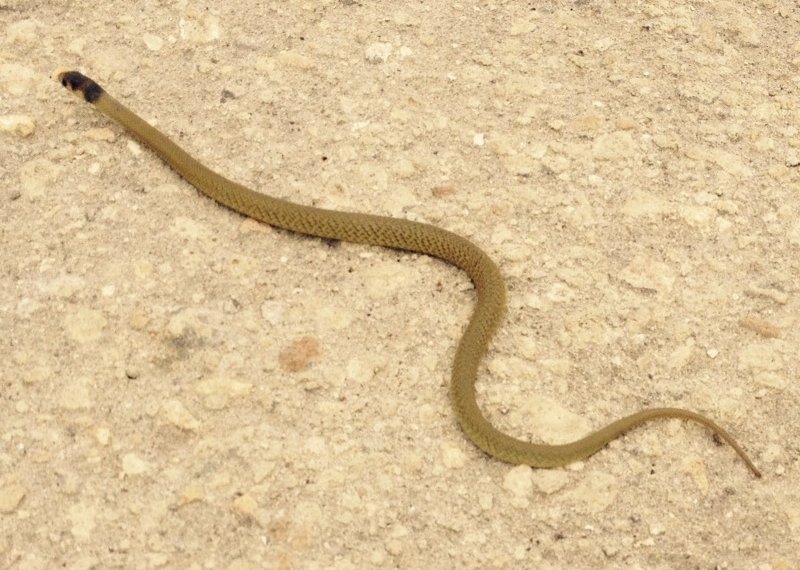
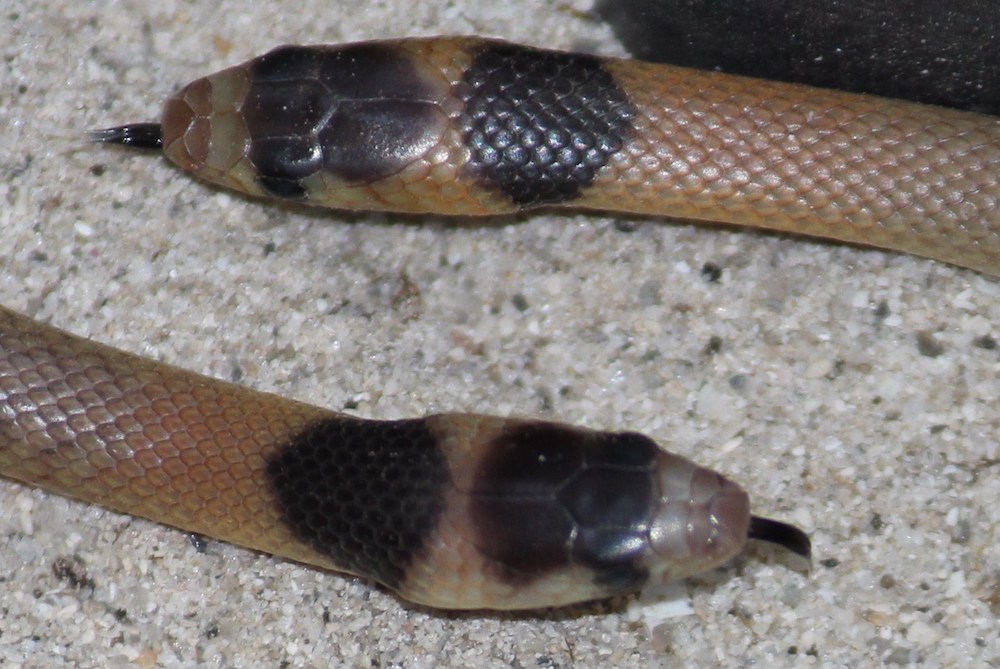
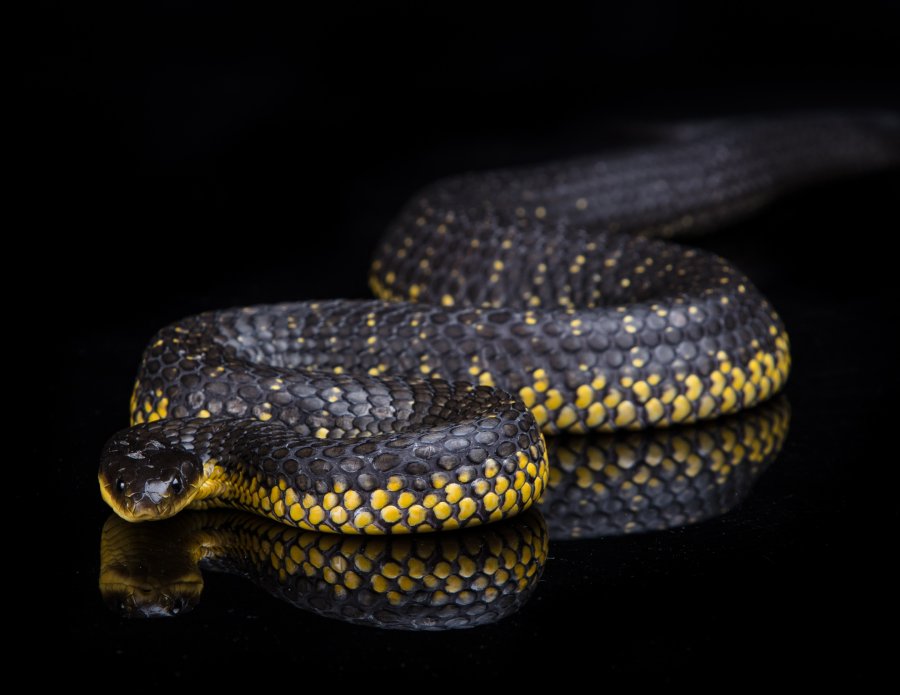
|
|
|
| SNAKE AVOIDANCE TRAINING FOR DOGS - BOOK NOW |
|
Our summer 2020 / 21 schedule is up and running. Don’t leave it too late. Once a date and location is fully booked that’s it, no spaces may be left for your preferred appointment. Fortunately to keep up with demand new dates are added all the time so check the website www.snakeavoidance.com.au for up-to-date information.
|
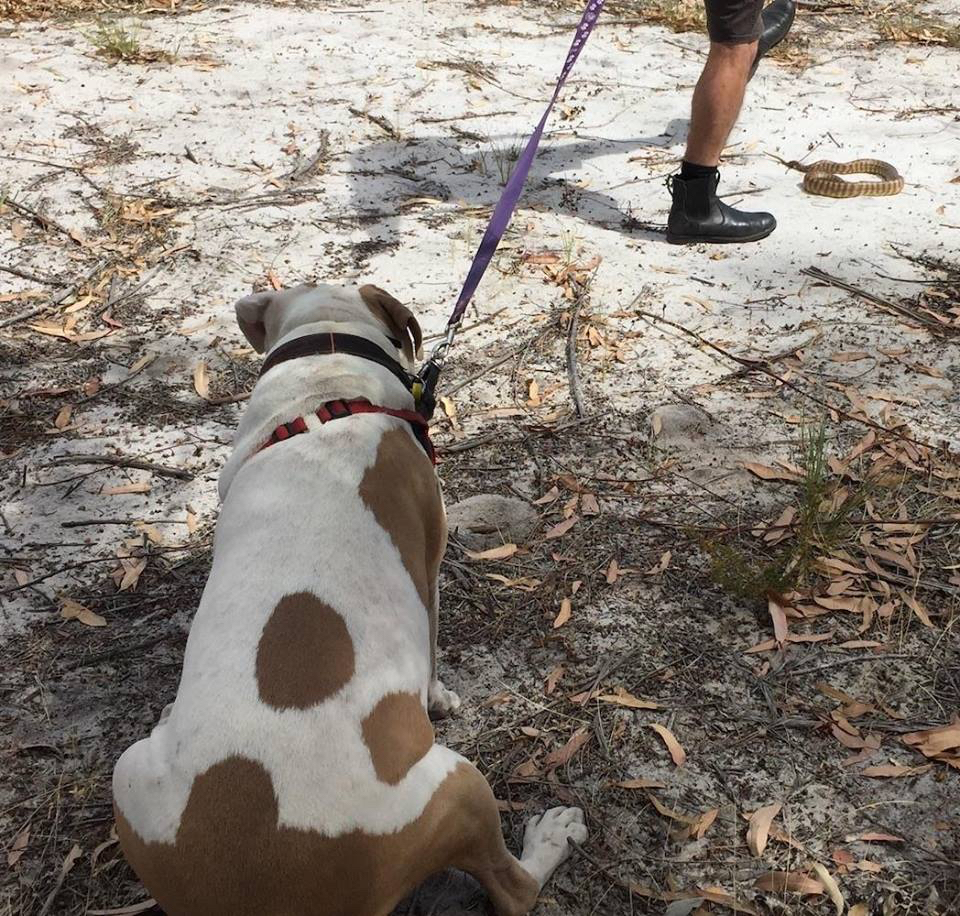
|
|
|
| SPECIAL OFFER |
|
SOLO SNAKE HANDLER KIT discounted price of $425 (usually $555).
|
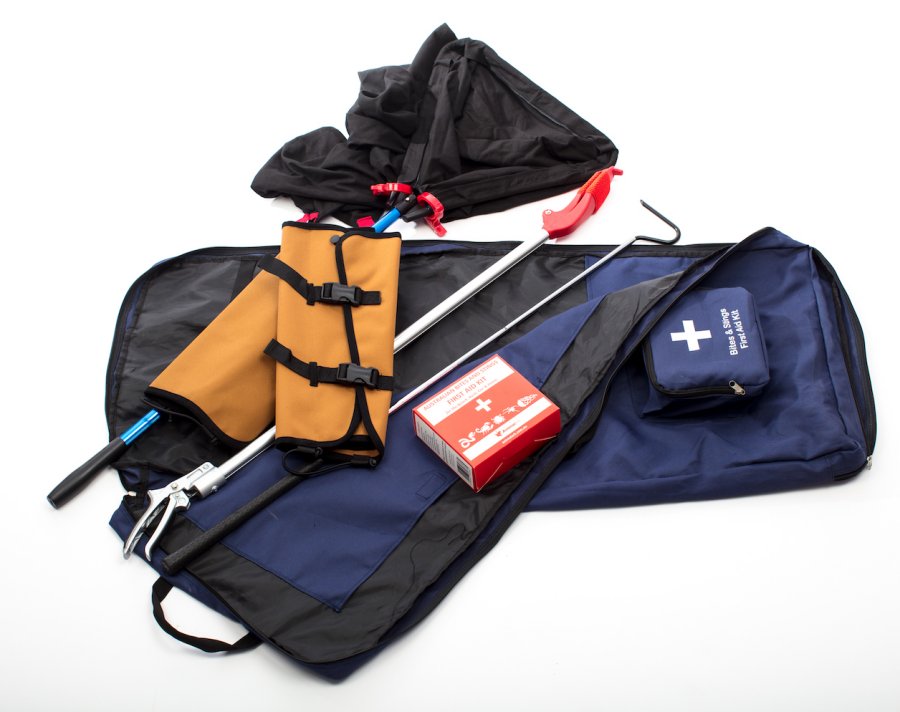
|
|
2 x SNAKE HOOKS
(one of each hook size, regular and medium)
Only $132 (usually $165).
|
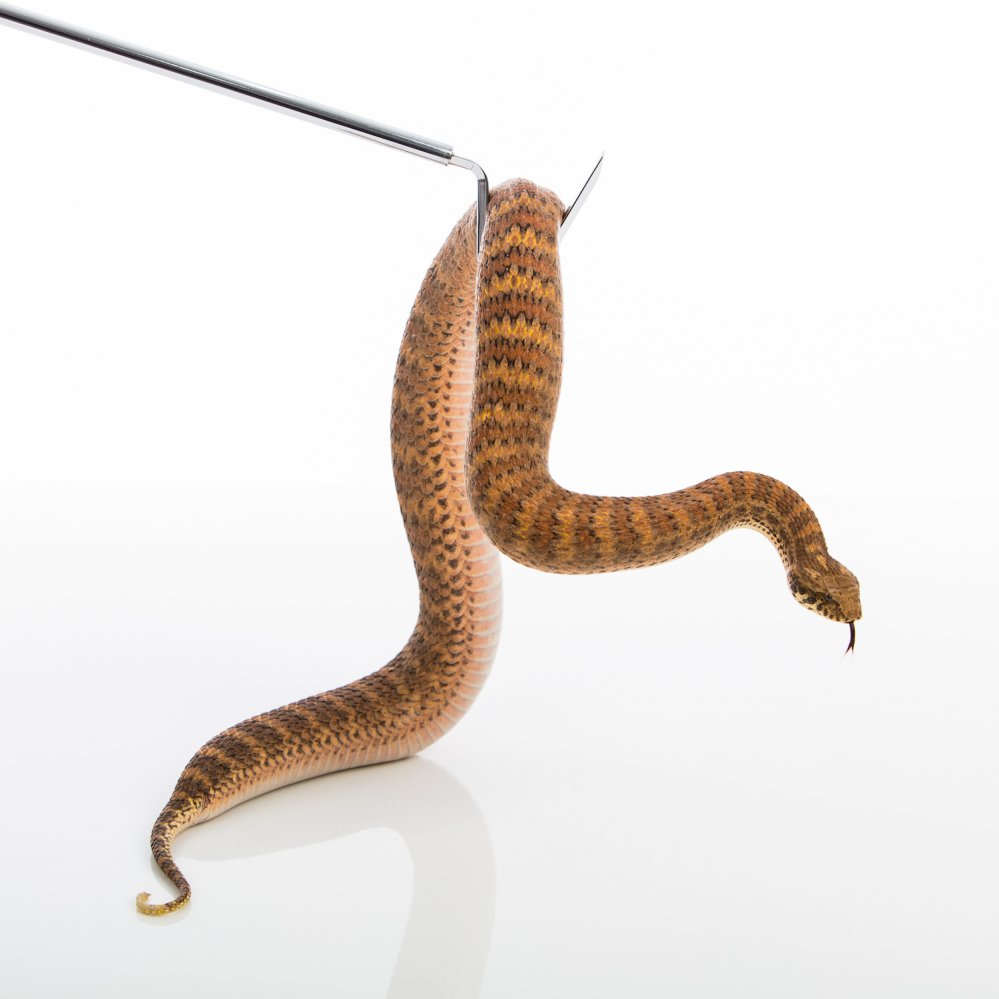
|
|
EXTRA Large hook
large pythons and really big snakes.
Only $95
|
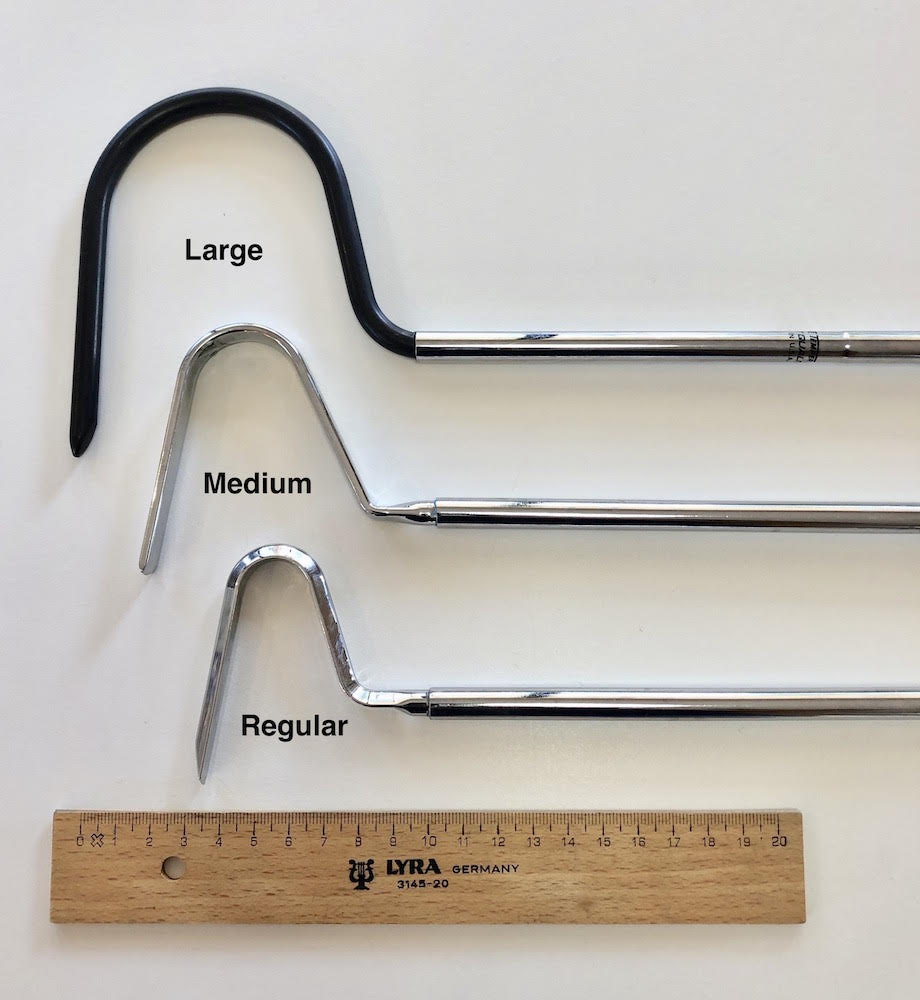
|
|
All include GST and shipping Australia wide. Phone or email orders only.
Offers ends 31 January 2021
Call 08 9243 3044, email shop@animalark.com.au to order.
|
|
|
| Animal in Focus: KING’S SKINK Egernia kingii |
|
King’s skinks are large heavy bodied lizards reaching up to 55cm total length. I am writing this in Albany where they are a commonly encountered reptile. Even very close to the centre of town I have seen them or more usually see only a part of their body, the rest being wedged in or under cracks in the gutters or street verges. They are usually quite dark ranging from brown, through grey to almost black in colour with lines of white/yellow spots along the body especially in juveniles. King’s skinks often live in family groups or small colonies. They squeeze into and under crevices and root systems and also dig or enlarge burrows. They are diurnal and whilst a large and powerful lizard they are also prey to snakes such as tiger snakes, many birds of prey not to mention domestic dogs and cats.
These lizards are omnivorous and will eat particularly the local soft vegetation including fruits and flowers. They will readily supplement the diet with insects, eggs and even small mammals and snakes.
After a gestation of around 5 months (140-154 days) up to 11 young are born alive.
Behaviourally king’s skinks like many reptiles are poorly studied – they have been seen to both fight with a tiger snake, defending their home range, but also fall prey to them. They are reported to have subsequent years of their own offspring living close to home – like a colony. Adults may stay together for many years as active couples.
|
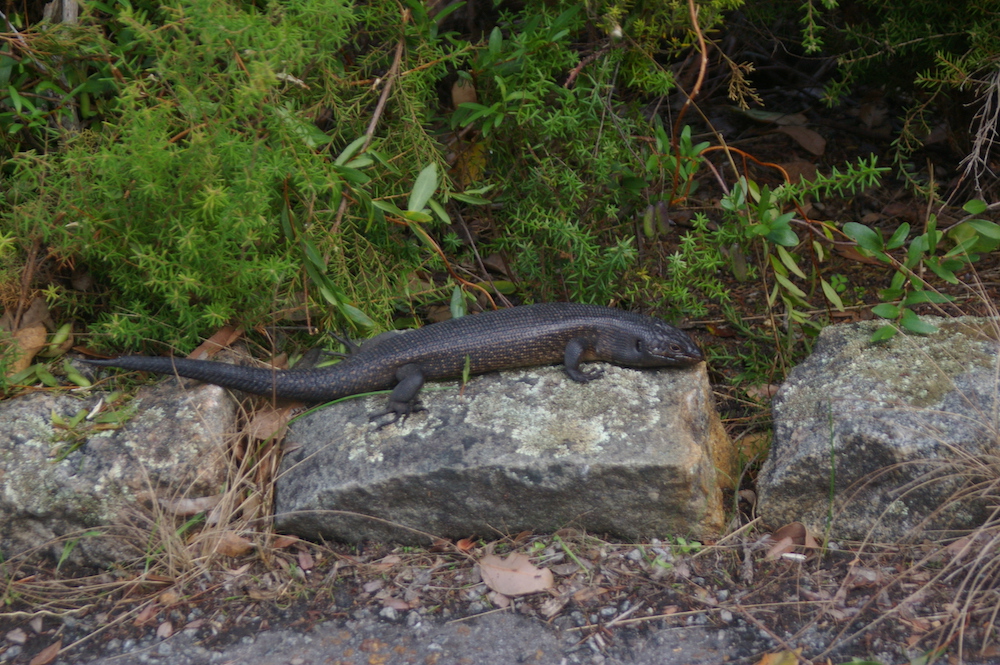
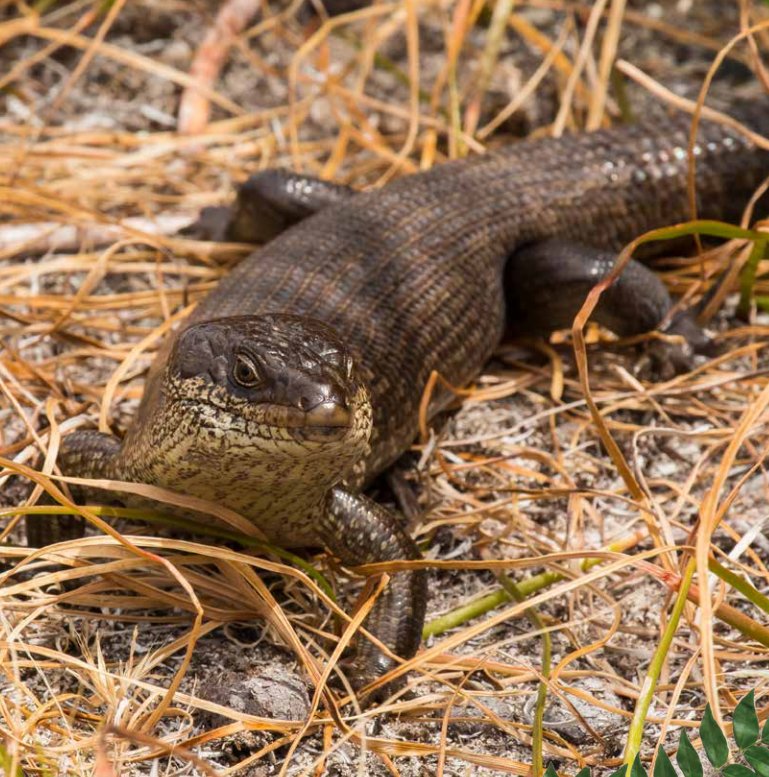
|
|
|
| Upcoming Courses and Events |
Snake Avoidance Training for Dogs
Thursday 7 January – Bunbury
Friday 8 January – Bunbury
Saturday 9 January – Harradines Vets, Bunbury
Monday 11 January – Two Rocks, in association with Yanchep Vets
Thursday 14 January – New Era Vets, Oakford
Saturday 16 January – Mahogany Creek, Perth Hills
Sunday 17 January – North Beach
Thursday 21 January – Margaret River
Friday 22 January – Margaret River
Saturday 23 January – Margaret River
Sunday 24 January – Quindalup, nr Dunsborough
Saturday 30 January – Jurien Bay, in association with Wheatbelt Vets
Saturday 6 February – New Era Vets, Oakford
Saturday 13 February – Manjimup, WA
Sunday 14 February – Nannup, WA
Tuesday 16 February – Mahogany Creek, Perth Hills
Friday 19 February – Albany area
Saturday 20 February – Albany area
Sunday 28 February – North Beach
Venomous Snake Handling Course
Licensed by DBCA Parks and Wildlife Service
Friday 15 January – Mahogany Creek, Perth Hills – FULL
Friday 5 February – Mahogany Creek, Perth Hills
Thursday 18 February – Albany, WA
Monday 22 February – Mahogany Creek, Perth Hills
Tuesday 9 March - Mahogany Creek, Perth Hills
Wednesday 25 March - Mahogany Creek, Perth Hills
Thursday 15 April - Mahogany Creek, Perth Hills
Friday 30 April - Mahogany Creek, Perth Hills
Thursday 13 May - Mahogany Creek, Perth Hills
Monday 31 May - Mahogany Creek, Perth Hills
Fauna Handling Course
Thursday 4 February - Mahogany Creek, Perth Hills
Thursday 29 April - Mahogany Creek, Perth Hills
Public Events
None currently scheduled.
For Snake and Fauna Handler training, events and schools, please see our diary at www.animalark.com.au/diary-of-events.
For Snake Avoidance Training for Dogs see our diary at www.snakeavoidance.com.au/dates-and-locations
Dates subject to change – best to check the websites.
Call (08) 9243 3044, SMS 0466 688 188 or email David and Jenny at info@animalark.com.au to book.
Courses held monthly and as required plus on-site and remote site training available.
|
|


|
|














